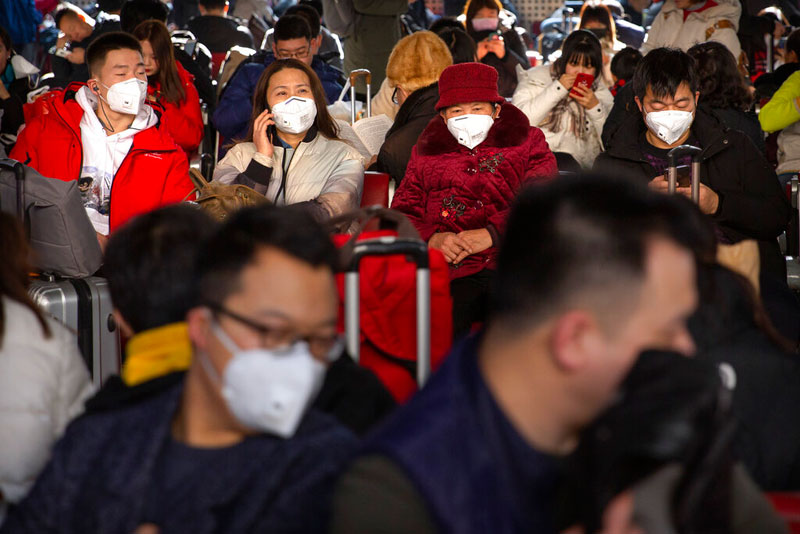The death toll from a mysterious flu-like virus in China climbed to six on Tuesday as new cases surged beyond 300 and authorities fretted about the added risk from millions of Chinese travelling for the Lunar New Year holiday.
Round the world, airports tightened screening of travellers from China as officials confirmed the coronavirus strain is contagious between humans.
The World Health Organisation (WHO) called a meeting for Wednesday to consider declaring a global health emergency.
The outbreak, which began in the central city of Wuhan, also sent shivers through financial markets as investors recalled the fallout from China’s Severe Acute Respiratory Syndrome (SARS) outbreak in 2002/2003 that it initially covered up.
The SARS coronavirus killed nearly 800 people then.
“We’ll stay at home during the holiday. I’m scared as I remember SARS very well,” said Zhang Xinyuan, who had been bound from Beijing for the Thai resort of Phuket before she and her husband decided to cancel their air tickets.
Authorities have confirmed more than 300 cases in China, mostly in Wuhan, a provincial capital and transportation hub, where the virus may have originated at a sea food market.
There have been six deaths in that city, mayor Zhou Xianwang told Chinese state television on Tuesday.
The virus has been spreading around other parts of China, however, including five cases in the national capital Beijing. Fifteen medical personnel are among those infected.
Abroad, Thailand has reported two cases and South Korea one, all involving Chinese travellers from Wuhan. Japan and Taiwan also confirmed one case each, both nationals who had been to Wuhan. “Information about newly reported infections suggest there may now be sustained human-to-human transmission,” said WHO’s regional director for the western Pacific, Takeshi Kasai.
Taiwan, the self-ruled island that China claims as its own, on Monday set up an epidemic response command centre. More than 1,000 beds were prepared in isolation wards in case the virus spreads further.
The mounting anxiety was transmitted to regional markets. China’s onshore yuan fell 0.6 per cent, its biggest daily drop since August 26, 2019.
European shares also slipped on concerns about the impact of the outbreak, with luxury goods firms particularly hard-hit on worries about weaker demand from Chinese consumers. Though the origin of the virus was yet to be identified, WHO said the primary source was probably animal. Chinese officials have linked the outbreak to Wuhan’s seafood market.
The virus can cause pneumonia, with symptoms including fever and difficulty in breathing.
As those symptoms are similar to many other respiratory diseases, extra screening is needed.
“The outbreak of a SARS-like coronavirus in Wuhan is developing into a major potential economic risk to the Asia-Pacific region now that there is medical evidence of human-to-human transmission,” said Rajiv Biswas, Asia Pacific chief economist for IHS Markit.











